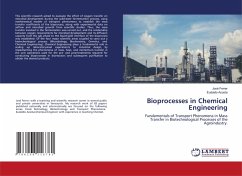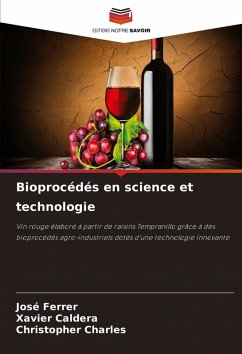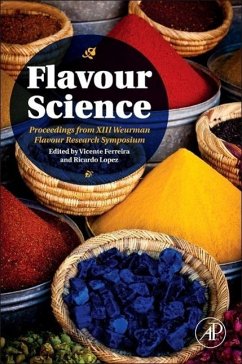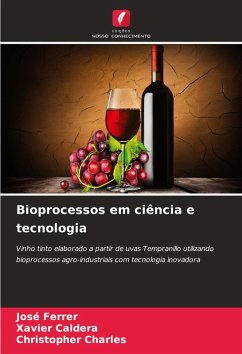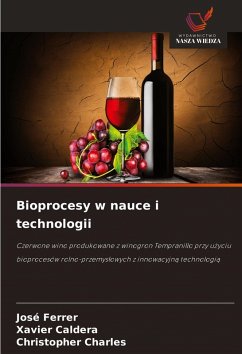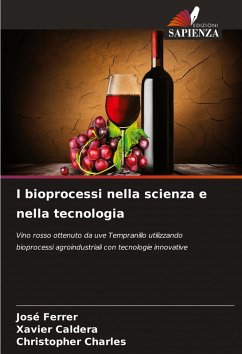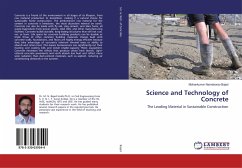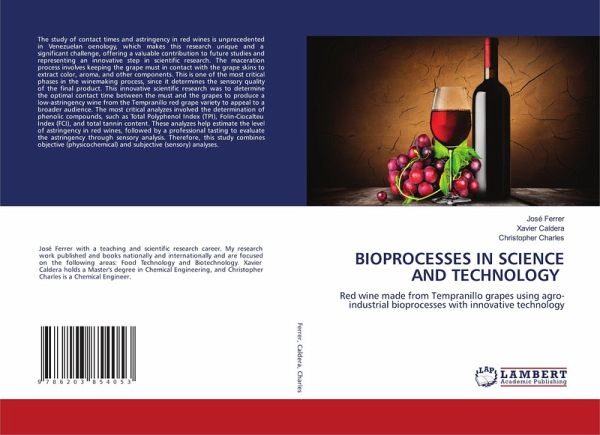
BIOPROCESSES IN SCIENCE AND TECHNOLOGY
Red wine made from Tempranillo grapes using agro-industrial bioprocesses with innovative technology
Versandkostenfrei!
Versandfertig in 6-10 Tagen
40,99 €
inkl. MwSt.

PAYBACK Punkte
20 °P sammeln!
The study of contact times and astringency in red wines is unprecedented in Venezuelan oenology, which makes this research unique and a significant challenge, offering a valuable contribution to future studies and representing an innovative step in scientific research. The maceration process involves keeping the grape must in contact with the grape skins to extract color, aroma, and other components. This is one of the most critical phases in the winemaking process, since it determines the sensory quality of the final product. This innovative scientific research was to determine the optimal co...
The study of contact times and astringency in red wines is unprecedented in Venezuelan oenology, which makes this research unique and a significant challenge, offering a valuable contribution to future studies and representing an innovative step in scientific research. The maceration process involves keeping the grape must in contact with the grape skins to extract color, aroma, and other components. This is one of the most critical phases in the winemaking process, since it determines the sensory quality of the final product. This innovative scientific research was to determine the optimal contact time between the must and the grapes to produce a low-astringency wine from the Tempranillo red grape variety to appeal to a broader audience. The most critical analyzes involved the determination of phenolic compounds, such as Total Polyphenol Index (TPI), Folin-Ciocalteu Index (FCI), and total tannin content. These analyzes help estimate the level of astringency in red wines, followed by a professional tasting to evaluate the astringency through sensory analysis. Therefore, this study combines objective (physicochemical) and subjective (sensory) analyses.





